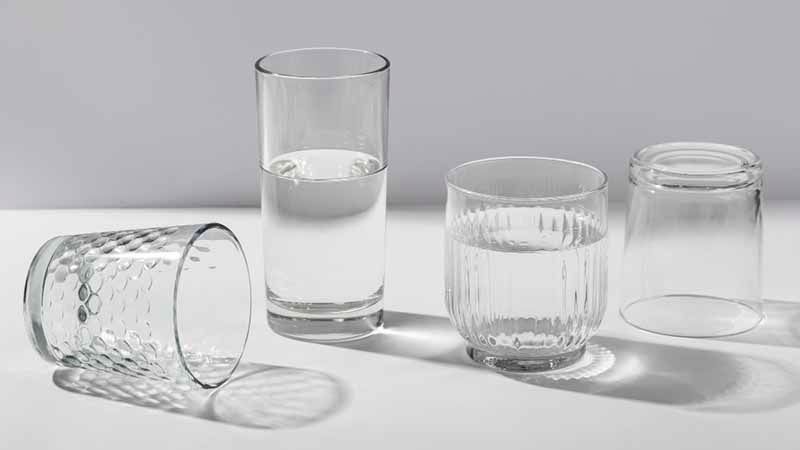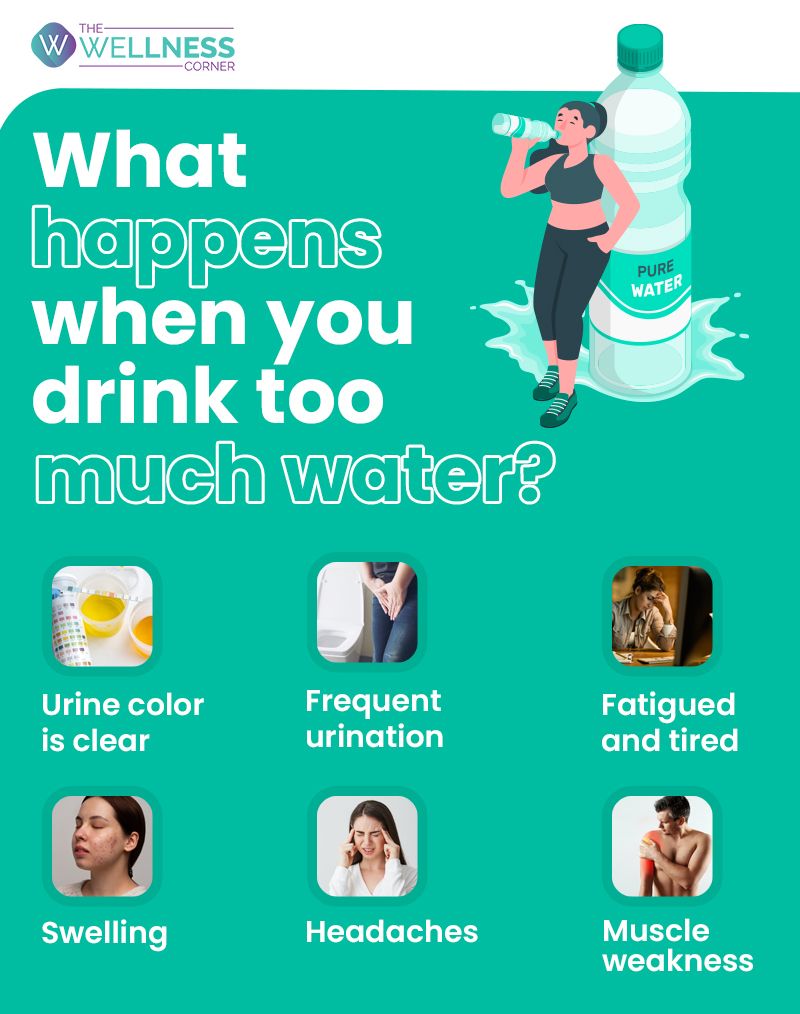Water Intoxication: When Overhydration Goes Wrong
25 months ago
4 minute read.

After all, we've all heard the advice to stay hydrated, right? But did you know that even something as essential as water can turn against you when consumed excessively?
Water is like fuel for your body; it keeps everything running smoothly. But, just as a car can't handle too much gas at once, your body can't handle too much water too quickly. It can cause problems because your body has a limit to how much water it can handle in an hour - around 0.8 to 1.0 liters. When you go beyond this limit, it can upset the balance of electrolytes in your body.
Now, you might be wondering, How much water should I drink every day? You've probably heard the advice to drink eight glasses a day, which is a good starting point. But it's not the same for everyone. You need to think about where you live, how much you move around, and your overall health.
What is water intoxication?
Water intoxication, often referred to as water poisoning, is a condition that occurs when you drink an excessive amount of water in a short period. It happens because drinking excessive amounts of water increases the volume of water in your bloodstream. This, in turn, can dilute the concentration of electrolytes, particularly sodium, in your blood. When the sodium in your blood drops below a critical threshold of 135 millimoles per liter (mmol/l), medical professionals term this condition as hyponatremia.
Sodium is essential for maintaining fluid balance inside and outside of your body's cells. When sodium levels fall significantly as a result of excessive water consumption, fluids flow from the exterior to the inside of cells, causing them to expand.
When this swelling affects brain cells, it can lead to dangerous and potentially life-threatening consequences.
Also read: Is water fasting safe? The pros and cons of this popular diet trend
Symptoms of water intoxication

- Nausea and vomiting: One of the earliest signs of water intoxication is the sensation of nausea, which may progress to vomiting. These symptoms represent your body's attempt to rid itself of excess water.
- Headaches: Reduced sodium levels in the blood can lead to throbbing headaches, causing discomfort and distress.
- Confusion and disorientation: Hyponatremia can impair cognitive function, resulting in confusion, disorientation, and, in severe cases, seizures.
- Swelling: Excessive water intake can prompt cells to swell, leading to edema, which manifests as swelling in various body parts, including the hands, feet, and ankles.
- Muscle cramps: Low sodium levels can induce muscle cramps and weakness, disrupting physical performance.
- Fatigue: Overhydration can induce profound fatigue and lethargy, leaving you drained and listless.
Also check: Is it safe to drink water from an earthen pot (Matka)?
Who is at risk of intoxication?
While anyone can develop hyponatremia if they consume excessive water, certain groups are more susceptible. Here's a breakdown of who is at risk:
- Endurance athletes: Marathon runners, triathletes, and long-distance cyclists are at higher risk because they often engage in prolonged, intense physical activities that result in significant fluid loss through sweat. In an attempt to stay hydrated, they may consume large amounts of water without replenishing lost electrolytes like sodium. This imbalance can lead to hyponatremia.
- Infants: Babies have immature kidneys and smaller bodies, making them more vulnerable to water intoxication. Well-meaning parents might inadvertently overfeed them with water or diluted formula, which can overwhelm their tiny systems and dilute their sodium levels.
- Heat and humidity: Hot and humid weather can increase fluid loss through sweating. While it's essential to stay hydrated in these conditions, overhydration without replacing lost electrolytes can be risky.

How much water should you consume per day?
There is no one-size-fits-all answer for how much water you should drink each day. Several factors determine your water requirements, including:
- Activity levels: The more active you are, the more water you need to stay hydrated.
- Climate: Hot weather increases fluid loss, requiring more water intake.
- Body weight: Larger individuals typically need more water than smaller ones.
- Sex: Men and women have different fluid requirements due to biological differences.
While the "8x8 rule" is a rough guideline, it's not suitable for everyone. Recommended intake values for women (2.7 liters) and men (3.7 liters) of ages 19-30 exist. However, certain groups, like athletes, older adults, and pregnant women, may need more attention to their fluid intake.
In essence, listen to your body, factor in your circumstances, and stay mindful of staying adequately hydrated.
You may also like: Does water have an expiry date?
Conclusion
There is no one-size-fits-all answer to the question of how much water you should drink in a day. It's a matter of listening to your body, considering individual factors, and staying mindful of your hydration needs. By doing so, you can maintain proper hydration and support your overall health without risking the potential dangers of overhydration. Remember, balance is key when it comes to water consumption.
Leave a Comment
Related Articles
Health Checks @ Home
Service
Explore
© 2025 Truworth Health Technologies Pvt. Ltd.




